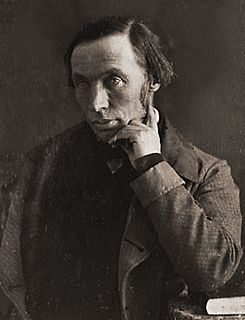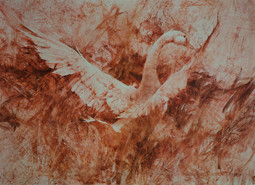A Quote by Hannah Arendt
Even though we have lost yardsticks by which to measure, and rules under which to subsume the particular, a being whose essence is a beginning may have enough of origin within himself to understand without preconceived categories and to judge without the set of customary rules which is morality.
Related Quotes
It is paltry philosophy if in the old-fashioned way one lays down rules and principles in total disregard of moral values . As soon as these appear one regards them as exceptions, which gives them a certain scientific status, and thus makes them into rules. Or again one may appeal to genius , which is above all rules; which amounts to admitting that rules are not only made for idiots , but are idiotic in themselves.
That which is received from without can be compared with knowledge. It leads to believing, which is seldom strong enough to motivate to action. That which is confirmed from within after it is contacted from without, or that which is directly perceived from within (which is my way) can be compared with wisdom. It leads to a knowing, and action goes right along with it.
An EU without Britain, without 1 of Europe's strongest powers, a country which in many ways invented the single market, and which brings real heft to Europe's influence on the world stage which plays by the rules and which is a force for liberal economic reform would be a very different kind of European Union.
If, in the opinion of the people, the distribution or modification of the constitutional powers be in any particular wrong, let it be corrected by an amendment in the way which the Constitution designates. But let there be no change by usurpation; for though this, in one instance, may be the instrument of good, it is the customary weapon by which free governments are destroyed.
It ought to be the first endeavour of a writer to distinguish nature from custom; or that which is established because it is right, from that which is right only because it is established; that he may neither violate essential principles by a desire of novelty, nor debar himself from the attainment of beauties within his view, by a needless fear of breaking rules which no literary dictator had authority to enact.
Though the principles of the banking trade may appear somewhat abstruse, the practice is capable of being reduced to strict rules. To depart upon any occasion from those rules, is consequence of some flattering speculation of extraordinary gain, is almost always extremely dangerous, and frequently fatal to the banking company which attempts it.
A law which excludes all dialectic and all reconciliation; which establishes, consequently, both the flawless unity of knowledge and the uncompromising division of tragic existence; it rules over a world without twilight, which knows no effusion, nor the attenuated cares of lyricism; everything must be either waking or dream, truth or darkness, the light of being or the nothingness of shadow.





































